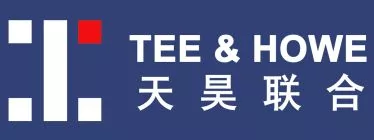The China National Medical Products Administration (NMPA) drug patent linkage measures have not mentioned how to handle the above situation (see my article https://www.linkedin.com/pulse/cn-patent-inkage-measures-trial-finalized-issued-nmpa-toby-mak).
This was decided in Novartis v. Chia Tai (Chia Tai-Tianqing Pharmaceutical Holdings Co., Ltd.) decided by the Beijing IP Court (北京知识产权法院(2022)京73民初581号民事裁定书, the decision)Excerpt of this decision is available at https://mp.weixin.qq.com/s/-6hzZ9ArHP3ZBbAnDBdekg. I am looking for the complete decision, and please let me know if you have one. The report below is based on the excerpt at the link above.
The drug at issue is Everolimus (sold under the brand Afinitor) for treating cancers including breast and kidney cancers. The patentee and drug marketing approval owner is Novartis, and the subject Chinese patents are 200780004302.4, 201310425110.8, and 200680051365.0 according to the "CN Orange Book" is available at https://zldj.cde.org.cn/home.
For explanation of different types of patent linkage declaration mentioned below, please see my "Unofficial" CN Orange Book user guide".
The Beijing IP Court decision indicated the following:
1)Chia Tai filed a type 4.1 declaration and subsequently filed respective invalidation requests at the CNIPA, resulting that the above three patents being declared invalid.
2)After the above three patents were declared invalid by the CNIPA, another Chinese generic ????? filed a type 2 declaration (naturally).
3)Novartis filed appeals against the invalidation decisions against the above three patents at the Beijing IP Court, which have not been decided at the time when the above decision was issued.
4)At the hearing of the above decision, Novartis argued that as the invalidation of the three subject patents are still under appeal, the Beijing IP Court should still determine whether the generic falls into the scope of the three patents to delay the generic drug marketing approval process.
5)The Beijing IP Court refused the request from Novartis based on Article 2 of the Judicial Interpretation of the CN Supreme Court (on trialing patent infringement dispute cases), which states that for a case based on a patent that has been declared invalid by the CNIPA, a court could deny the case. The Beijing IP court further stated that this Article 2 is also applicable to drug patent linkage dispute.
6)The Beijing IP Court further stated that while both Novartis and Chia Tai could be affected by the outcome of the invalidation appeals, if the invalidation appeals were reversed (which is very unlikely statistically, as the reversal rate is about 5% in the last three years), Novartis could still sue Chia Tai for infringement afterwards.
Several observations:
·The type 2 declaration was filed by another generic, and therefore Novartis could only sue Chia Tai, as there is no mechanism to sue the other generic filing a type 2 declaration.
·It is interesting to see the Beijing IP Court accepted this case, as the NMPA measures only allow complaints to be filed for type 4.2 declaration. If I were the one deciding, I would simply reject this case based on the type of declaration being 4.1.
·According to 6), the court apparently has no idea how the price of a patent-protected drug is affected by the grant of a generic marketing approval even without actual sales. May be this is the exact purpose, as the Chinese government is pro-generic (as evidenced by the draft Implementation Rules of the Drug Administration Law in 2022).

